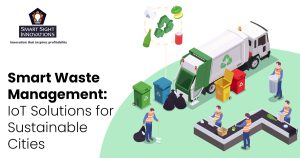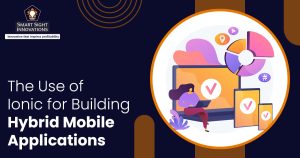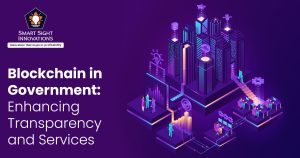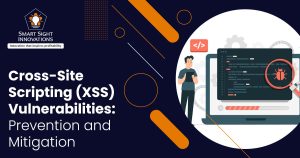From the BlackBerry 10 and BlackBerry OS to the present day, we have come long from with mobile app development. The year 2018 too is winding up after new collaborations and technology advancements that have made apps ubiquitous in both B2B and B2C application.
A lion share of credit goes to the ever-increasing growth of mobile devices and daily spending on apps. In 2016, global mobile users constituted a whopping figure of 2.1 billion and the figure is slated to cross five billion marks by 2019, says Statista.
From dispensing simpler ways to shop, track work-flows, visualize complex data as infographics to connecting with devices by leveraging cutting-edge technologies like IoT, AI, and VR, mobile app development industry is turning the wheels for mobile app revolution.
Based on the market observations and industry trends, compiled below are some of the possibilities for the future of mobile application development:
- Greater Speed with AMPs: Accelerated mobile app pages or AMP was laid out a year ago by Google that also announced segregating the search index especially for the mobile web. With AMPs, apps are able to load faster ensuring great page viewability, increased customer engagement, reduced page abandonment, and bounce rates. This technology holds the key to transform the ever-growing app development space for further lucrative changes.
- User Experience out of the Mobile Screen with AR and VR: In our earlier blogs, we have mentioned how AR helps users experience and visualize screens in the real world. VR allows is concurrently raining popularity by changing the way, businesses and users communicate, shop and engage in online activities through mobile apps. Be in manufacturing, aeroscape, entertainment, retail and fashion industry, VR has grown in vast proportion and is encouraging businesses to build devices that transform mobile devices as gadgets with unique UI designs and features.
- Machine Learning and AI will Set New Standards in App Development: Best examples of AI-powered apps are Siri, Duolingo, Prima, Tetra and Google Now. These apps have ruled the mobile app development space in 2017 and with more than 300 percent increase in the investment by many organizations on this technology, it was obvious to see components of AI leveraged extensively. AI alongside machine learning will be used to build platforms for user recommendations, derive powerful insights through data analysis, language translation, geolocation and more. It giants including Google, Facebook and many more are collaborating and acquiring start-ups that are at the forefront of AI and machine learning.
- The growth of Enterprise Apps: Mobile app development for the B2B users has gained momentum as mobility is becoming the new order of businesses and apps provide an opportunity to collaborate, manage and mobilize workforces. As per statistical data, the global enterprise mobility market is expected to reach 2.9 billion USD by 2019. The demand for mobile apps for the enterprise community is the outcome of the developments in the blockchain, machine learning, AI and AR and VR. For the future, enterprises are pushed for the development of apps that can be enriched to deliver superior mobile experiences and digital support for productivity, control, and flexibility.
- Increased App Security: Surveys on cybersecurity risks highlights insecure storage, privacy, system data leak, unsafe deployment and misuse to be the primary areas of risks that custom smartphone app development solution providers need to focus on. As Gartner’s findings more than three-thirds of the mobile apps are most likely to fail security tests. Incidentally, hackers are increasing tension around mobile app security with their antics in infiltrating mobile apps. But companies can still avert such risks by making use of frameworks that help develop reliable and secure mobile apps like JavaScript.
- Use of Wearable Devices: As per Gartner records, the sale of smartwatches by 2021 will be 81 million units. The wearable technology market is bound to experience an upswing with the development of mobile apps for creating smart homes, health tracking platforms and many other lifestyle management apps.
- Cloud-enabled Mobile Apps: Cloud technology’s biggest merit, safe, anytime and anywhere data storage and access has paved its way into the mobile app development space. Besides Google Drive and DropBox, many other cloud apps will bolster mobile internet traffic by 90 percent, predicts Cisco research. From video streaming, online gaming, social networking, and online storage, many new cloud apps will soon become commonplace in 2019.
- The rise of Smartphone-controlled IoT Devices: This is another obvious outcome of cloud-enabled application growth. Many custom mobile app developers have taken a special interest in IoT for its better flexibility in disseminating data. IoT collaboration in this mobile and web apps space will also power users to take better control of the smart devices and IoT gadgets through a single app. This trend is expected to sweep over healthcare, agriculture, retail and smart home technology market.
- Use of Geo-targeting Platforms: Location targeting or geo-targeting are increasing in mobile advertising, market research, retail, and entertainment business. Smartphone app developers are going to build personalized and mobile-optimized apps that helps track users’ real-world physical location through mobile networks or beacon signals. These apps will be developed for proximity marketing, mobile-optimized research, and surveys as well as in other important facets of marketing.
- Chatbots: Chatbots saw an amazing response throughout 2018 with the increased in chatbot interactions on mobile apps or websites and swift adoption by brands and businesses as a proxy for customer services personnel. Gartner studies suggested more than 50 percent increase in the number of enterprises using chatbots in 2018. Concurrently many apps received funding of several million to create platforms that use chatbots to connect people and send personalized notifications, reports, and alerts. This technology will soon dive into banking, finance and accounting areas.
The list is exhaustive, and markets are volatile with countless innovations waiting in line to disrupt the mobile app development space. To thrive under such mercurial scenarios, businesses and enterprises need to stay updated on intricate factors like security, scalability and better control to avoid facing any decision fatigue.
Antiquated tools and philosophies must be chucked out to leverage a host of unique opportunities in the mobile application development space.
Are you game for it? Let us know.













